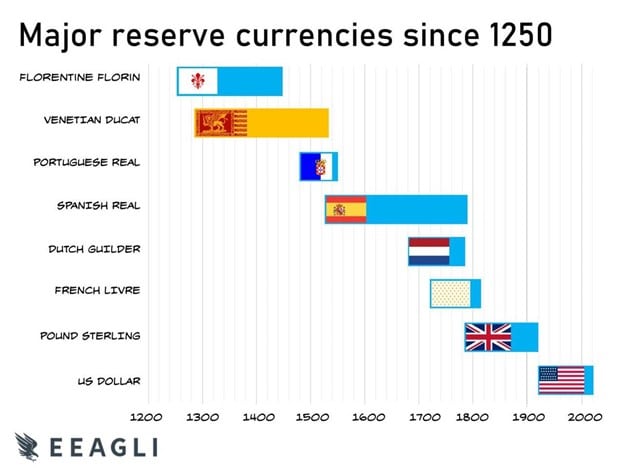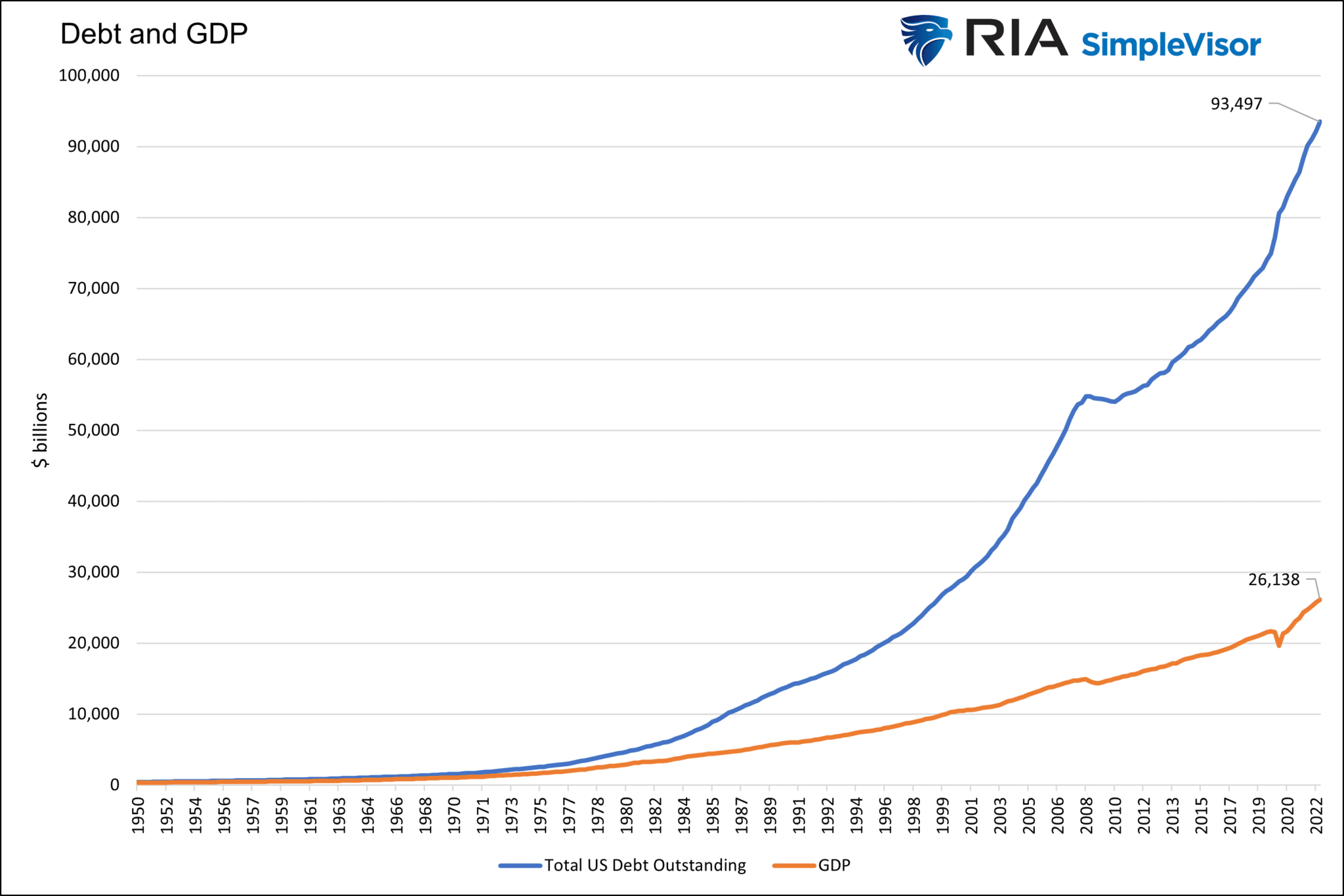One & One Green Technologies stock soars 100% after IPO debut
Headlines like the ones below lead some to believe that the U.S. dollar’s death may be coming soon.
- China, Brazil Strike Deal to Ditch Dollar for Trade- Barron’s 3/2023
- China Completes First Yuan-Settled LNG Trade – Reuters 3/2023
- The U.S. Dollar Loses its Crown – Financial Times 2/2023
Don’t hold your breath. Headlines forecasting the dollar’s death as the world’s reserve currency have been around for a long time.
- The Disappearing Dollar – Economist 12/2004
- Why the Dollar’s Reign is Near an End Wall Street Journal 3/2011
- Dollar Seen Losing Global Reserve Status – CNBC 9/2013
For those losing sleep that the Chinese yuan, Bitcoin, or some other currency will commandeer the dollar’s throne as the world’s reserve currency, sleep tight. That day is not coming anytime soon.
There are four critical reasons why the dollar will not lose its global reserve status anytime soon.
We share details of those in Part 2. First, it’s worth a brief history of reserve currencies and what they portend. The background will allow you to better appreciate the problem with the dollar and why the dollar’s death is unlikely in the near future.
History of the Dollar and Reserve Currencies
When explorers began sailing around the globe in the 1400s, demand for a common currency multiplied to facilitate global trade. Since then, international trade networks have flourished, and the need for one currency that all trade parties accept has become commonplace.
One currency accepted by trade partners alleviates the need for barter. Barter only works if both parties have something of value the other party wants. If not, one partner must then offload the goods they received in barter to another trade partner. Such can be awkward and expensive when dealing with large or cumbersome goods. It is also fraught with risks such as spoilage, theft, and fire, among other problems.
A reserve currency usurps barter trade by allowing a seller to accept currency in exchange for goods, hold the currency easily and safely, and then use it at their convenience to purchase goods from another party.
As the graph below shows, eight reserve currencies have existed since 1250. Each one before the dollar saw its reign end due to financial negligence. The dollar has been the world’s reserve currency for a relatively short time.

Bretton Woods
Before the dollar, the British Pound was the world’s reserve currency. The U.K. was the largest exporter of goods and services and had the most advanced banking system, insurance offerings, and commodities markets. Their military strength helped as well.
The U.K.’s financial burden from World Wars I and II forced them to abandon the gold standard and nearly bankrupted them. Towards the end of World War II, the Allies realized that sustainable post-war economic growth, rebuilding, and peace required a more stable currency.
In 1944 at a conference of world leaders in Bretton Woods, New Hampshire, the dollar was crowned the world’s reserve currency.
The Dollar is Following the Doomed Path of other Currencies
In Our Currency, The World’s Problem, we state:
Foreign nations accumulate and spend dollars through trade. They keep extra dollars to manage their economies and limit financial shocks. These dollars, known as excess reserves, are invested primarily in U.S.-denominated investments ranging from bank deposits to U.S. Treasury securities and a wide range of other financial securities. As the global economy expanded and more trade occurred, additional dollars were required. As a result, foreign dollar reserves grew and were lent back to the U.S. economy.
Lending by other nations to the U.S. resulted in cheaper and easier funding for the U.S. government and its corporations and citizens. As we show, the amount of debt expanded well beyond our ability to pay for it.

To help ease the pressure of being severely overleveraged, the Fed has managed interest rates lower than they would be otherwise. Easy monetary policy, including QE and negative real interest rates, promotes speculative behavior over productive investment. Consequently, economic growth further deteriorates, making debt more burdensome to service and requiring even easier monetary policies. The flawed circle of debt and growth has its limits. However, unlike the bankrupted British and French before the dollar, there is currently no worthy replacement.
Summary
If peace and prosperity were to follow two world wars and a global depression, the world would need a strong reserve currency. The dollar fit the bill in 1944, and it still does.
The rule of law, liquid financial markets, and economic and military might were traits that only the dollar had at that time.
While many years of relative peace and prosperity have transpired in the last 85 years, the economic landscape and military power have shifted. While there are many flaws with the U.S. economy and its dollar, the other options are not viable.
The old saying goes that the U.S. dollar is the cleanest shirt in the dirty laundry. Once again, talk of the dollar’s death will likely be proven false.
